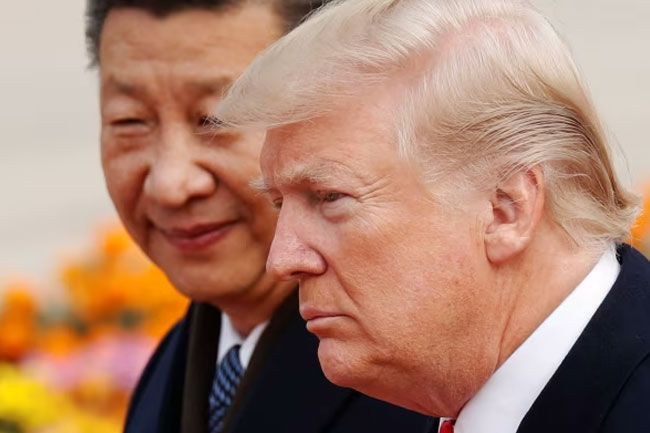Can The Trump Administration Escape Contempt Charges?
Explore why a federal judge believes the Trump administration might face criminal contempt for not complying with a deportation order. Delve into the ramifications of this legal standoff in the judiciary.
Published April 18, 2025 - 00:04am

Image recovered from reason.com
In a contentious legal battle, U.S. District Judge James Boasberg has found probable cause to hold the Trump administration in criminal contempt of court. This conclusion arises from the administration's alleged violation of court orders demanding the return of deportation flights carrying Venezuelan migrants. The controversy stems from President Donald Trump's invocation of the 1798 Alien Enemies Act, targeting suspected Venezuelan gang members believed to have ties to the notorious Tren de Aragua gang.
Boasberg's temporary order, issued to halt deportations under the 1798 law, evidenced the administration's defiance. Despite being temporary, his order was ignored as two deportation planes had already taken off with migrants, heading to El Salvador. It inked a strained dynamic between judicial oversight and executive power, underlining the relentless tug-of-war regarding immigration policy.
Washington was informed as the planes, which allegedly transported members of the plaintiff class, reached Honduran airspace. The migrants were eventually detained in El Salvador's contentious Center for Terrorism Confinement (CECOT). The Trump administration contended that the migrants posed significant threats, their expedited deportation remaining crucial to public safety. Nevertheless, Judge Boasberg's argument suggested a deliberate circumvention of legal processes, indicating a potentially significant disregard for judicial authority.
The clash diverged further with El Salvador's accession to house the migrants. President Nayib Bukele posted on social media, highlighting the deportees' arrival and the far-reaching scale of deportation proceedings. Boasberg saw this as a deliberate manifestation of contempt. The U.S. is grappling with whether the executive branch's actions crossed constitutional bounds, challenging the ethos of judicial oversight.
Complicating the matter further, the Supreme Court vacated Boasberg's order, deeming it procedurally flawed. Despite this, Boasberg emphasized the inherent responsibility to comply with judicial orders, reiterating that error does not invalidate an order's authority until officially reversed in court. The administration faced an April 23 deadline to provide feasible remedies or face potential contempt proceedings if officials responsible for non-compliance are identified.
From a broader perspective on judicial authority, this case is pivotal. Legal analysts evoke the possible implications of contempt, potentially involving sanctions or significant procedural disruptions. The call for remedy juxtaposes the judicial imperative to uphold the rule of law against instances of perceived judicial overreach. Moreover, Judge Boasberg's emphasis on compliance raises questions about executive responsiveness to the judiciary's role in maintaining checks and balances.
Stanford's Robert Weisberg highlighted Boasberg's vigorous claims of defiance, asserting its compelling nature in predicting executive-judiciary confrontations. In tandem, Yale's Nicholas Parrillo contextualizes contempt charges as fostering significant deterrence. Nevertheless, the compelling power of contempt rests on adherence to established legal orders and precedents.
In April, the Administration appealed to the DC Circuit Court of Appeals against Boasberg's ruling. The Trump administration remains staunch in its immigration stances, facing mounting scrutiny on policy conduct and expedited deportations. Their legal resistance embodies a wider skepticism towards judicial intervention in executing executive mandates, a sentiment often vocalized in polarized political climates.
Ultimately, the unfolding series of events shape ongoing legal discourse, challenging conceptions of jurisdiction and responsibility. While specifics and outcomes remain indefinably fluid, Boasberg's courtroom assertions insist on adaptation to court instructions as irremovable, despite fluctuating political context. As such, the broader narrative surrounding immigration insists discourse extends well beyond the courtrooms and legislative halls, positioning constitutional authority at the forefront of ordinary citizens' lives.






